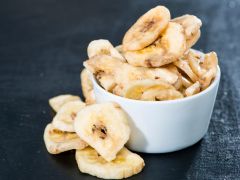Incorporating these foods into your diet can help reduce hot flashes during menopause.

Consuming a variety of fruits and vegetables can help regulate oestrogen levels and reduce hot flashes
Hot flashes are one of the most common symptoms experienced by women during menopause. They can be uncomfortable and disruptive, but diet and lifestyle changes can help alleviate their frequency and intensity.
Including certain foods in your diet can assist in reducing hot flashes. In this article, we will explore foods that can help in reducing hot flashes during menopause, along with an explanation of their benefits.
These 9 foods that can help manage hot flashes during menopause:
1. Soy
Soy contains phytoestrogens, which are plant compounds that mimic oestrogen in the body. Since decreasing levels of oestrogen contribute to hot flashes, consuming soy-based foods like tofu, soy milk, or edamame can help reduce their occurrence.
2. Flaxseed
Flaxseed is rich in lignans, another type of phytoestrogen. These compounds have been shown to possess oestrogen-like effects and can help balance hormone levels. Incorporate flaxseed into your diet by sprinkling it over yogurt or adding it to smoothies or baked goods.
3. Whole grains
Whole grains such as brown rice, quinoa, and oats are rich in vitamins, minerals, and fibre. They can help stabilise blood sugar levels and provide a steady source of energy, reducing the likelihood of hot flashes triggered by blood sugar fluctuations.
4. Fruits and vegetables
Consuming a variety of fruits and vegetables provides necessary vitamins, minerals, and antioxidants, which can help regulate oestrogen levels and reduce hot flashes. Aim for a colourful diet, including leafy greens, berries, citrus fruits, and cruciferous vegetables like broccoli and cauliflower.
5. Cold-water fish
Cold-water fish like salmon, mackerel, and sardines are high in omega-3 fatty acids, which have anti-inflammatory properties. These fatty acids can help alleviate the severity of hot flashes by reducing inflammation and supporting hormone balance.
6. Nuts and seeds
Nuts and seeds like almonds, walnuts, and sunflower seeds are excellent sources of healthy fats, including omega-3 fatty acids. Additionally, they provide essential vitamins and minerals that support overall well-being and can help reduce hot flashes.
7. Herbal teas
Certain herbal teas, such as black cohosh, red clover, and chamomile, have been traditionally used to alleviate menopause symptoms. These teas can help regulate hormone levels and promote relaxation, reducing the recurrence of hot flashes.
8. Water
Staying hydrated is important during menopause, as dehydration can worsen hot flashes. Drinking an adequate amount of water throughout the day can help regulate body temperature and minimise the intensity and frequency of hot flashes.
9. Spices
Incorporating certain spices into your diet can help cool down the body and reduce hot flashes. Examples include sage, which has been shown to decrease the intensity and frequency of hot flashes, and turmeric, which possesses anti-inflammatory properties.
In conclusion, incorporating these foods into your diet can help reduce hot flashes during menopause. Including these foods in your daily diet can assist in balancing hormone levels, reducing inflammation, promoting relaxation, and maintaining hydration. However, it is important to remember that individual experiences may vary, and consulting with a healthcare professional for personalised advice is recommended.
Disclaimer: This content including advice provides generic information only. It is in no way a substitute for a qualified medical opinion. Always consult a specialist or your own doctor for more information. NDTV does not claim responsibility for this information.
DoctorNDTV is the one stop site for all your health needs providing the most credible health information, health news and tips with expert advice on healthy living, diet plans, informative videos etc. You can get the most relevant and accurate info you need about health problems like diabetes, cancer, pregnancy, HIV and AIDS, weight loss and many other lifestyle diseases. We have a panel of over 350 experts who help us develop content by giving their valuable inputs and bringing to us the latest in the world of healthcare.














